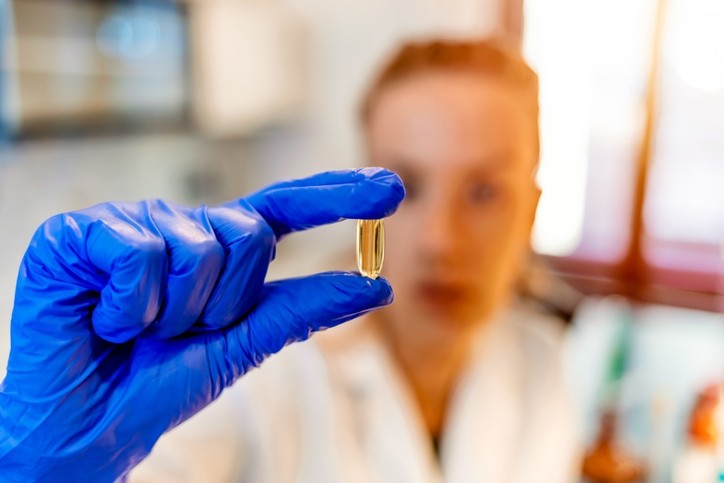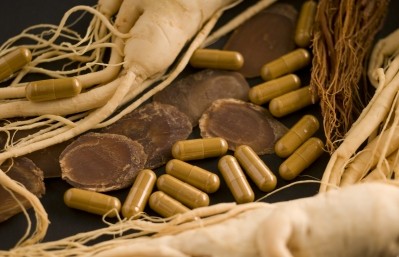BMJ studies that discount vitamin D in COVID fight draw ire

The study focused on vitamin D and COVID-19 suggest the sunshine vitamin isn’t likely to prevent COVID-19 or respiratory infections like colds or flu.
The clinical trial, published in the British Medical Journal, was part of COVIDENCE UK, a national study aimed at investigating risk factors for developing COVID-19. Researchers enrolled 6,200 participants, aged 16 and up.
UK Study
A randomized sample of the participants were given a vitamin D blood test and 3,100 people were found to have low vitamin D levels. The other 3,100 people were assigned to be controls.
The study participants with low levels of vitamin D were then randomized into two groups of 1,550 people who were assigned to take either 3,200 IU or 800 IU of a vitamin D supplement every day for six months.
The recommended daily dose of vitamin D for people in the US between the ages of 1 and 70 is 600 international units (UI) a day and 800 IU a day for those over 70. In the UK, the recommended daily amount is 400 IU a day.
During the six months of the trial, the study suggests neither the high nor low dose of vitamin D had any effect on preventing respiratory tract infections or confirmed COVID-19 cases when compared with the control group.
Norway study
A second double-blinded, randomized clinical trial, also done during the pandemic, gave over 34,000 Norwegians cod liver oil, which contains low doses of vitamin D, or a placebo to test the impact of vitamin D on COVID and respiratory disease prevention.
The study divided 34,601 people between the ages of 18 and 75 into two groups. Each group took either 1 teaspoon of cod liver oil or 1 teaspoon of corn oil, which served as a placebo, each day for six months over the winter.
Each teaspoon of cod liver oil contained approximately 400 IU of vitamin D. Just over 75% of the participants were not using vitamin D supplements before enrollment.
Unlike the UK study, where many of the participants were vitamin D deficient, the Norway study found that 90% of people in the cod liver oil group and 72% of those in the placebo group had adequate levels at the start of the study. “But we did not find that this measure influenced the chance of getting COVID-19 or other acute respiratory infections,” the authors said.
The authors found no effect of cod liver oil on any outcome, including polymerase chain reaction confirmed COVID-19.
Caveats
Luke Huber, ND, Vice President, Scientific & Regulatory Affairs at the Council for Responsible Nutrition (CRN), said the studies should be read cautiously, despite some overly simplistic early media coverage. “Reporting on this research that suggests vitamin D levels are not relevant to COVID-19 outcomes ignores the large body of research on this connection and downplays critical limitations of these studies.”
One noteworthy limitation is the UK study was not blinded or placebo controlled, with participants aware that they were taking vitamin D supplements.
“Although the research studies were reasonable in some ways, the way they are being interpreted in the media as showing ‘no benefit for vitamin D in Covid is not,” explained best selling author and board certified internist Jacob Teitelbaum, MD.
“In terms of whether taking vitamin D lowers the risk of Covid, what the study suggests is that in those with healthy vitamin D levels it may not. But even this is not clearly proven. The study suffered from not having been blinded, so people taking the active vitamin D treatment knew that they were on an active treatment. Had the study showed vitamin D to be effective, nutritional medicine detractors would’ve certainly invalidated the study out of hand because it was not blinded. Also, vaccinations became available during the study, which is a potent confounding variable. In fact, in those who were not vaccinated who took the higher dose of 3200 units of vitamin D a day (68 people), none tested positive for Covid during the study. Also, almost shockingly, half of the control subjects were also taking vitamin D on their own. Which frankly is insane for a study of vitamin D’s effectiveness in COVID.”
Teitelbaum added that with no blinded placebo control and half of the participants in the inactive “control” group taking the vitamin D on their own, the conclusions of the study are highly suspect.
David Meltzer, MD, PhD, chief of hospital medicine at UChicago Medicine, also noted the open label piece. “This could bias the results if people who know they are taking no or low dose vitamin D are more careful to avoid risks or more likely to seek vitamin D supplementation outside of the study.”
“The study population was a highly and recently vaccinated group. This may be especially important because vaccination for all these people was quite recent and we know immunity wanes substantially over time. Along these lines it is very notable that in unvaccinated pts. 0/68 covid+ in 3200 IU treatment group vs 9/191 (4.7%) in controls.”
Study population
Another limitation Meltzer noted is there were not enough people of color to assess effects within that group, which may be one where the benefits of vitamin D may be much greater.
Black Americans are infected with COVID-19 at nearly three times the rate of White Americans, according to a report from the National Urban League. The report also shows Black Americans are twice as likely to die from the virus.
Additionally, Teitelbaum pointed out that 86% of the people in the second study that looked at outcomes had normal vitamin D levels, and most were fairly young and healthy. “This is not a group where severe outcomes are normal. In fact, much less than 1% had severe infections. So the study was done on the wrong population. It needed to be done on high risk people with low vitamin D levels. Not healthy, young people with normal vitamin D levels. So it does not contradict studies showing the importance of vitamin D in COVID.”
The final word? There isn’t one
An editorial in BMJ accompanying the studies said the two new trials find no effect, but aren’t the final word and conclude, “the null findings of the studies should be interpreted in the context of a highly effective vaccine rolled out during both studies.”
Meltzer said that while he thinks these are valuable studies and add to our understanding of whether vitamin D may reduce the risk of developing COVID-19, the research also leaves important questions still unanswered.
“Bottom line? I am still highly recommending a multivitamin with vitamin D and zinc for overall immune health during these Covid times,” said Teitelbaum.
Sources: British Medical Journal
2022; 378 doi.org/10.1136/bmj-2022-071230
“Effect of a test-and-treat approach to vitamin D supplementation on risk of all cause acute respiratory tract infection and covid-19: phase 3 randomised controlled trial (CORONAVIT)”
Authors: D. Jolliffe et al.
British Medical Journal
2022; 378 doi.org/10.1136/bmj-2022-071245
“Prevention of covid-19 and other acute respiratory infections with cod liver oil supplementation, a low dose vitamin D supplement: quadruple blinded, randomised placebo controlled trial”
Authors: S. Brunvoll et al.
















